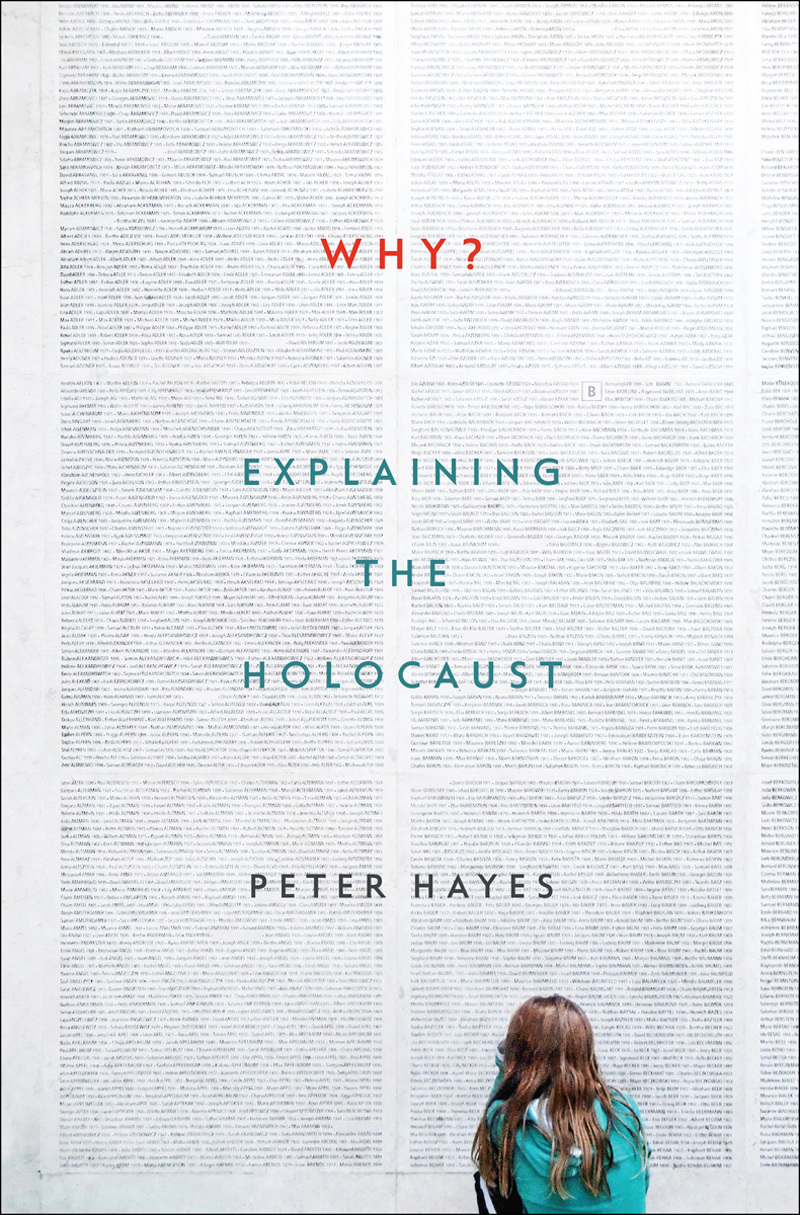What do you think?
Rate this book


432 pages, Hardcover
First published January 17, 2017
“To say that one can explain the occurrence of the Holocaust seems tantamount to normalizing it, but professing that one cannot grasp it is an assertion of the speaker’s innocence—of his or her incapacity not only to conceive of such horror but to enact anything like it.”In other words, to explain the murder of 6 million people requires finding a rational motive which then mitigates the massive evil involved. But to consider the event as a mute fact implies that inhumanity is simply beyond expression for ‘normal’ people.
1. Why the Jews? Because their emancipation in the nineteenth century from centuries of residential and occupational confinement aroused a backlash that gave new impetus and new form to a chimerical hatred—that is, to a belief that they constituted the single cause for everything that others opposed and feared.The book thoroughly lays out the points in history that support the above conclusions. If the these statements raise questions in your mind, please refer to the book.
2. Why the Germans? Because a massive and multidimensional national crisis, a perfect storm of economic, political, cultural, and social upheavals, opened the way for believers in this hatred to acquire power in Germany and to reinforce or indoctrinate others in their views.
3. Why murder and with these means? Because of a process of problem-solving mission creep, a cumulative radicalization of policy, as increasingly harsh efforts to "remove" Jews from German territory proved insufficient or unworkable and gave way to ever more extreme methods of "elimination."
4. Why was the eradication of the Jews so nearly successful, resulting in the deaths of two-thirds of those in Europe and at least three-quarters of those within reach of the Nazis? Because indifference and self-interest in Germany and then the occupied or satellite states during World War II cleared the way for the haters; because the logistics of murder proved uncomplicated and self-financing; because the Nazis' ferocious onslaught peaked during the period of their greatest military success; and because most of the killing was done when the Allies against Germany could neither observe nor interdict it. (p.326-327)
... antisemitism played a primary or decisive role in bringing Hitle to power ...The final pages of the book offer the author's take on the implications for us today. The following is my summary without elaboration or support. I recommend reading pages 333 to 343 to see the book's supportive reasoning.
... Hitler planned to murder the Jews from the day he took office ...
... Allies could have done much io impede the killing once it began ...
... greater passive or active resistance by Jews could have reduced the death toll considerably ...
... popular attitudes toward Jews, rather than political structures and interests, were the principal determinants of survival ...
... the Holocaust diverted resources from the German war effort an weakened it in significant ways ...
... slave labor systems was driven principally by greed ...
... most of the leading perpetrators of the Holocaust escaped punishment after World War II ...
... the Holocaust was a product of modernity and a demonstration of its dangers. ...
... it never happened. ... (p.327-330)
Lesson One is: Be alert but not afraid. ...(p336)The book notes that the United States is blessed by having much diversity with not one ethnic group being dominate. But of course that doesn't stop political rhetoric opposing the most recent immigrants.
Lesson Two...is: Be self-reliant but not isolationist. ...(p339)